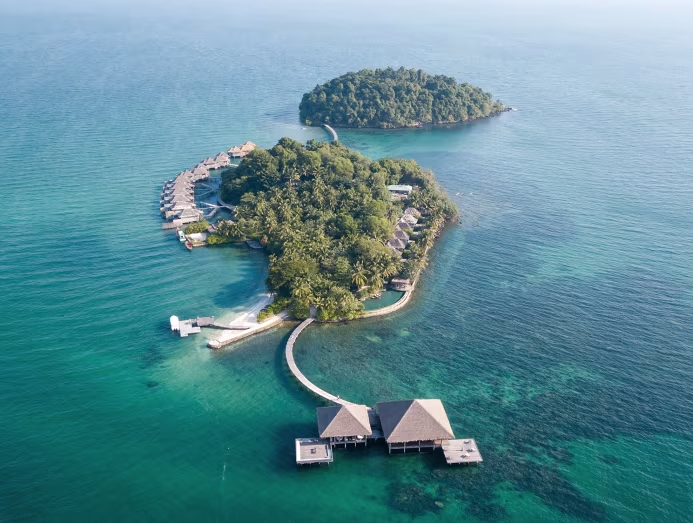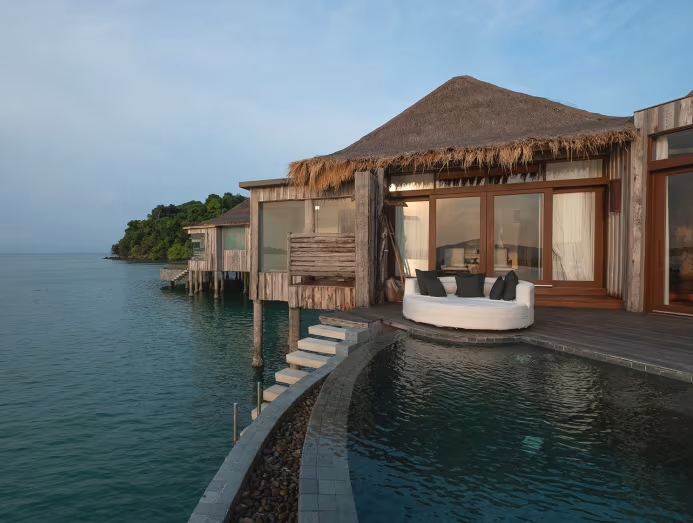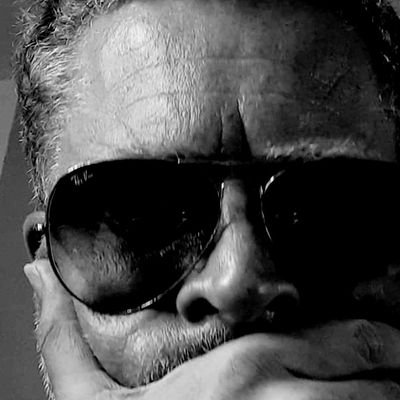When Melita Koulmandas set foot on a tiny rainforest island in Cambodia’s Koh Rong archipelago in 2004, she never imagined she’d one day be at the forefront of regenerative tourism in Southeast Asia. What started as an unexpected purchase for $15,000—sealed with a thumbprint on a piece of paper—has since evolved into Song Saa Private Island, a pioneering eco-luxury resort and a model for sustainable hospitality.
Regular readers will know that Song Saa Private Island features at the top of my list of luxury eco-accommodation get-aways in Cambodia. During my last trip I had the chance to learn more about Melita Koulmandas’ journey, her vision for Song Saa, and how she is redefining the very meaning of luxury travel.

The Serene Song Saa Private Island Resort
A Serendipitous Beginning
“It was never the plan to open a resort,” Koulmandas tells me, reflecting on that fateful day in 2004. She and her former partner were exploring the Koh Rong archipelago on a rented fishing boat when they stumbled upon two tiny islands. One was home to a fisherman who, struggling to feed his family due to over-fishing, was preparing to move back to the mainland.
“He asked if I wanted to buy the island, and I just said yes,” she recalls with a laugh. But rather than thinking of it as an investment, it was the beauty of the place and the urgency of its environmental decline that pulled her in.
The islands were covered in rubbish. The reefs were dying. Koulmandas realised that if nothing was done, this pristine paradise would disappear. That’s when she decided to act.
Building Cambodia’s First Marine Reserve
Rather than focusing on tourism first, Koulmandas worked with local village chiefs to establish Cambodia’s first protected marine reserve. This wasn’t just about conservation—it was about community.
“I saw how paying locals to help with the clean-up impacted their lives. For the first time, women were able to work, and families had double incomes. They could afford to send their children to school,” she says.
By 2012, the work needed a way to sustain itself. Song Saa Private Island was born—a luxury resort with a deeper purpose, designed to fund conservation, provide jobs, and showcase the true beauty of Cambodia.
Redefining Luxury: From Opulence to Responsibility
The name Song Saa means “sweethearts” in Khmer, fitting for a resort that attracts honeymooners and couples. But Koulmandas is quick to point out that this is not luxury in the traditional sense.
“The definition of luxury travel has changed. People want more than just a beautiful hotel and a nice experience—they want authenticity, connection, and meaning,” she explains.
Song Saa’s 24 villas—whether overwater, jungle, or ocean view—are all built using sustainable materials. There are no single-use plastics, and the resort’s food sourcing programme tracks the carbon footprint of every ingredient. Even the guest experience is designed with responsibility in mind—if fish stocks are low, fresh seafood simply isn’t served that day.
“Other high-end resorts will go to the ends of the earth to meet a guest’s request. We invite our guests to be part of the ecosystem instead,” says Koulmandas.

The villas at Song Saa Private Island Resort are built above the sea
The Next Chapter: Song Saa Reserve in Siem Reap
Not one to stand still, Koulmandas is now leading Song Saa Reserve, a 200-hectare project in Siem Reap, adjacent to the Banteay Srei temple.
“This land was once a primary rainforest, but it’s been degraded due to illegal logging. Our mission is to regenerate the land and create a mix of commercial and non-profit initiatives,” she says.
The development will include hotels, residential properties, a hospitality training centre, and conservation projects—all designed with regenerative principles.
“Sustainability is no longer enough. We need to actively repair and restore what has been lost. That’s what regenerative tourism is about,” Koulmandas says.
Lessons from an Accidental Hotelier
When asked what she has learned from her journey, Koulmandas is candid:
“You don’t need to have all the answers before you begin. I started Song Saa knowing nothing about hospitality. Being open to learning, adapting, and evolving is the most important thing.”
She also believes in mistakes as part of the process.
“As an entrepreneur, you will make mistakes. The key is to recognise them quickly and shift. Growth comes from constant reassessment.”
How Can We Travel More Responsibly?
So what can travellers do to support businesses like Song Saa? Koulmandas offers simple but powerful advice:
- Educate yourself before you go – Understand the local culture and traditions.
- Be a respectful visitor – Sensitivity to local customs matters.
- Support ethical businesses – Choose accommodations and tours that invest in the community and environment.
- Ask questions – The more engaged and curious you are, the more meaningful your experience will be.
Final Thoughts
Koulmandas’ story is proof that one person’s decision can spark lasting change. What began as an impulse purchase is now a model for regenerative travel, transforming both landscapes and livelihoods in Cambodia.
“Cambodia has been through so much. But its story is one of resilience and healing,” she says. And thanks to visionaries like Melita Koulmandas, its future is looking brighter than ever.


